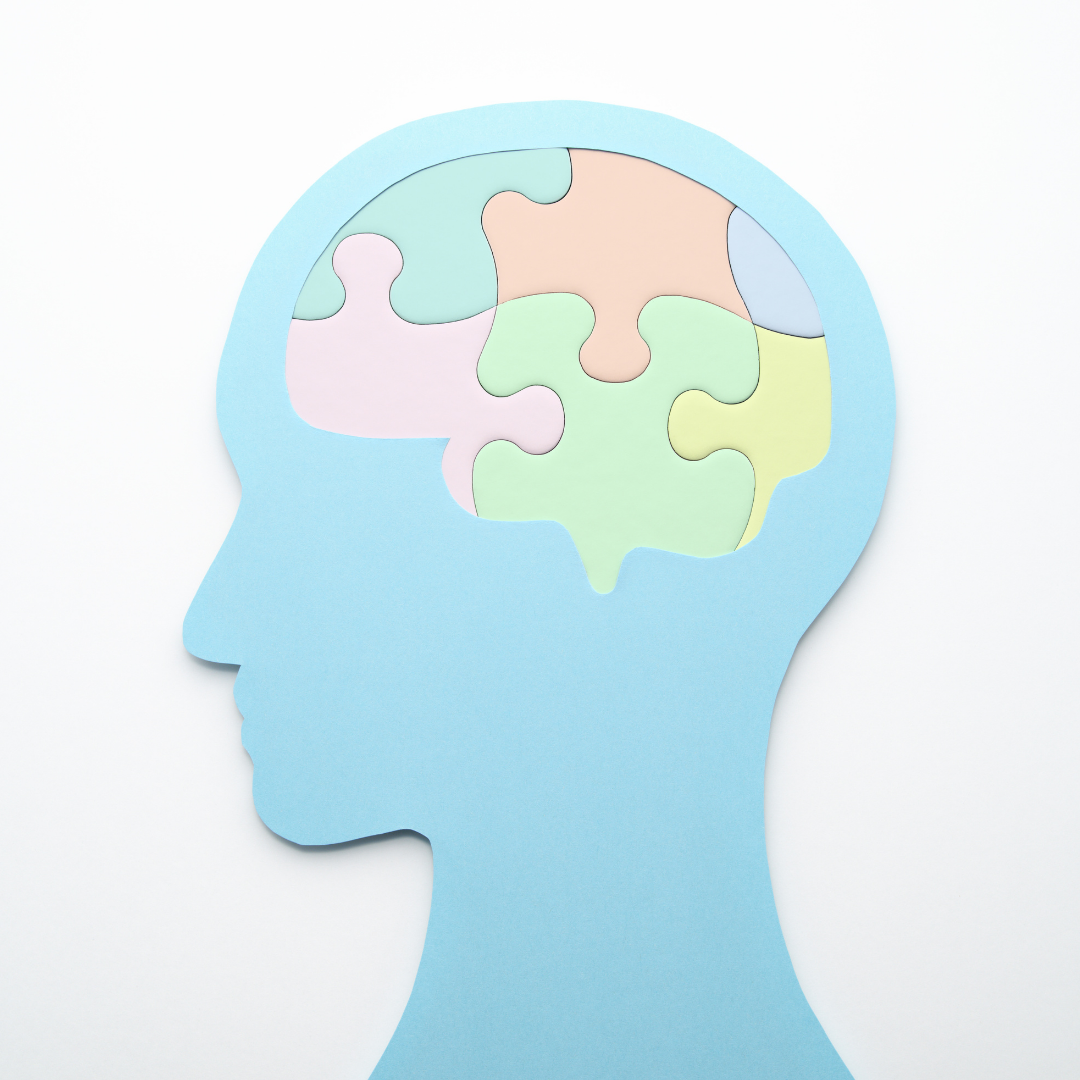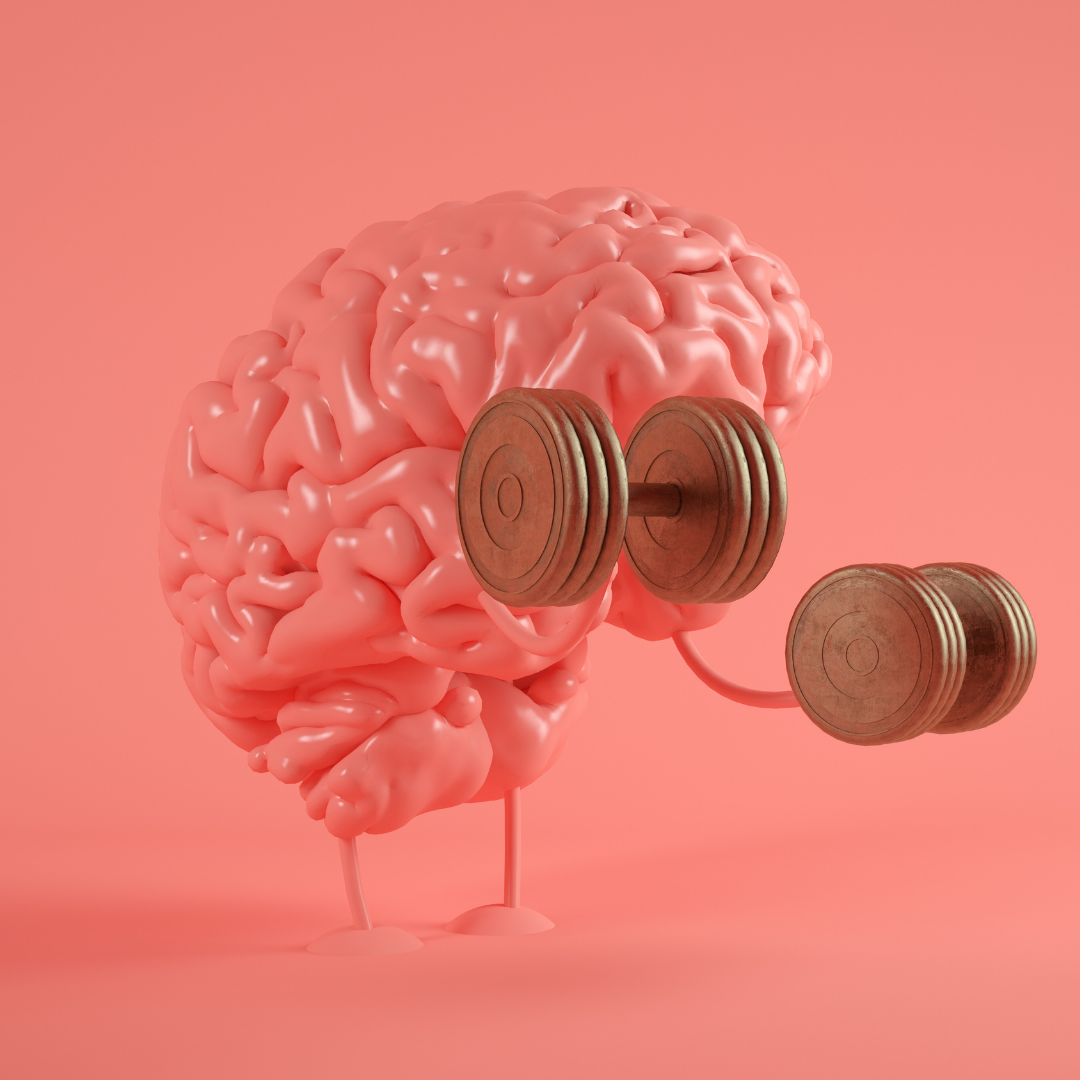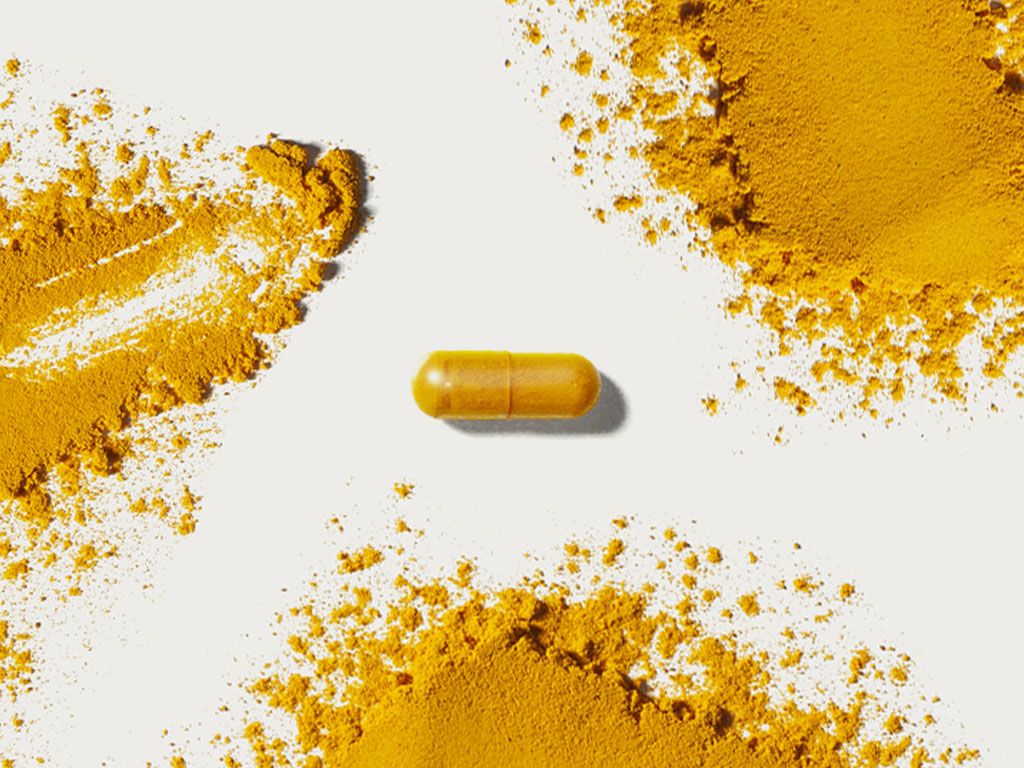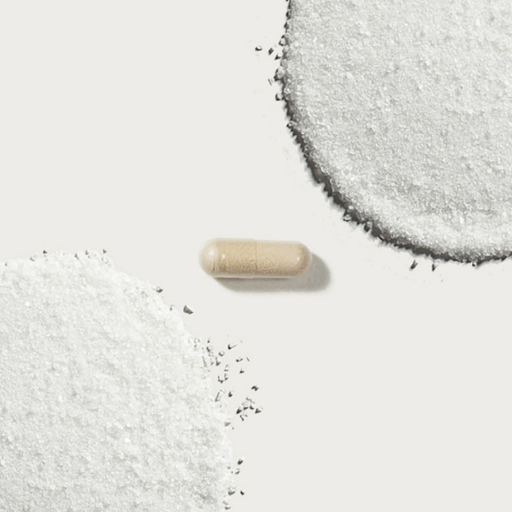Wellness Blog
The content on this blog is for general informational purposes only and is not a substitute for professional medical advice, diagnosis, or treatment. Always consult your healthcare provider before making changes to your health routine or taking new supplements.
Why you need vitamin B12 to support brain health
The brain is our body's central processing unit that controls everything from physical movement to emotions. Acknowledging its critical role in remaining functional, one of many supplements that support brain health is vitamin B12. Vitamin B12 is one of the eight water-soluble components under the Vitamin B umbrella. While B12 is necessary for promoting energy, and supporting the immune system, it also plays a significant role in brain health. Read on to understand in greater detail the connection between vitamin B12 and the brain.An overview of our brainBefore we talk about vitamin B12 for the brain, let's first have an overview of the brain. Our brain is the most complex part of our body. It is the origin of all the qualities that define our humanity: the way our body moves, our behavior and intelligence, and the way we interpret our senses (1). This delicate organ oversees our consciousness, and can be affected by a wide range of events, from everyday encounters to long-term trauma and disorders (2).The human brain is largely different from that of an animal's. It constitutes about 2% of our body weight, but uses up 20% of our energy (3). As science has learned more about our brain and its important functions, it has become increasingly clear how important it is to make sure our brain is at its healthiest. So, how do you begin to take care of such a principal organ of our body? Read on to find out!Keeping your brain healthyThere was a belief that the brain's capacity to change and develop dramatically declines as we get older. But as we uncover more about our brain, it's becoming more apparent that the brain has the potential for neuroplasticity, or the brain's ability to change and adapt the function and structure of our neurons. Neuroplasticity allows us to learn new information and stimulate our brain's different synapses with various activities, keeping it healthy and agile at any age (5).Maintaining brain health is all about keeping your brain active and engaged. Here are some tips you can consider in supporting brain health: Work on your mental fitness. The brain is a muscle that needs regular “workouts.” There are a lot of ways to keep your brain engaged and stimulated, ranging from cultivating a social life and enriching your brain with meaningful human interactions, to learning a new language or a new skill such as dancing or cooking (5). Get an adequate amount of sleep daily. The brain repairs itself during deep sleep, consolidating information from yesterday and preparing the brain for what comes next. Excessive sleep loss and poor quality of sleep can lead to memory loss, fatigue, mood disorders and immune system complications (6). Keep yourself active. Regular exercise can improve your brain's functions. At least 30 minutes of moderate exercise everyday already gives the brain a much needed oxygen boost, yielding significant and immediate health benefits (6). Stick to a well-balanced, low-cholesterol diet. The brain and the body need amino acids, protein, vitamins and minerals from your diet to stay healthy. Good nutrition means your brain receives the right amount of energy and nutrients it needs to function everyday (6). Seems like a lot? We feel you. As we continue to lead a fast-paced modern life, it can get overwhelming to stick to a regimen, but don't fret. Vitable Australia's personalised vitamin subscription can help you get the adequate amounts of vitamin B12 for the brain when paired alongside a well-balanced diet.Vitamins for brain functionFood has always been seen as a means to provide energy and to keep our bodies growing, but its role in maintaining our brain's health is being closely studied. Research in the past few years has provided exciting evidence on the influence of nutrition on specific mechanisms that help maintain brain health. As it turns out, our diet plays a big role in neuroplasticity, revealing that the brain can use certain vitamins and minerals in order to stay adaptable and healthy (7). Vitamins such as vitamin B, C or E, and minerals such as magnesium are just some of the nutrients your brain needs to stay healthy (8). Sticking to a strict diet can be a big challenge, but a reliable vitamin subscription can keep you up to your toes when it comes to brain health. Vitamin B12, for example, does not naturally occur in our body and must be obtained via our diet (9).What is vitamin B12?Vitamin B12 is essential for the blood, brain and nervous system (10). When a person is vitamin B12 deficient, he or she can develop multiple health problems, spanning from complications in your blood to difficulty in motor and cognitive functions. Symptoms include tiredness, light-headedness, rapid heart rate, and easy bruising, among others (12). Loading up on liver, meat, milk, cheese, eggs and other animal products can help make sure your body receives the right amount of vitamin B12 for the brain and body (10). However, if you are unable to source animal products for your diet, vitamin B12 supplements can be a good alternative.Vitamin B12 for the brainLow levels of Vitamin B12 have been associated with neurological disorders. This is because when the body metabolises vitamin B12, it produces homocysteine that is found to improve brain function (11). Vitamin B12 also plays a role in the synthesis of protein structures that are essential to the performance of nerves and nerve cells. It is also important for the synthesis of neurotransmitters (13).Research has found that making sure your diet includes the entire B-vitamin group, including vitamin B12, can be a reliable and rational approach at maintaining brain health (12).Vitamin B12 is important for cognitive development and better functioning. It also assists the brain to process information better, and promotes overall wellness for the nervous system.Vitamin B12 supplements may just be what you need to ensure your brain stays adaptable, healthy and developed. Vitable Australia offers a vitamin delivery plan with custom supplements that you can personally build according to your needs. Boost your daily vitamin intake to support brain health with a vitamin subscription delivered right to your doorstep! Find out more about other supplements that can support brain health:Zinc | Iron | Astaxanthin | Ashwagandha | Magnesium | B complex | Vitamin C | Vitamin D | Daily probiotics | Vitamin B12 | Ginkgo Brahmi | Fish oil | Vegan Omega*Always read the label. Follow the directions for use. If symptoms persist, talk to your health professional. Vitamin and/or mineral supplements should not replace a balanced diet.References: National Institute of Neurological Disorders and Stroke Content Team. “Brain Basics: Know Your Brain”. National Institute of Neurological Disorders and Stroke: Ninds.Nih.Gov. Published June 9, 2021 on https://www.ninds.nih.gov/Disorders/Patient-Caregiver-Education/Know-Your-Brain. Accessed December 3, 2021. Better Health Channel Content Team. “Brain”. Better Health Channel: Betterhealth.Vic.Gov.Au. Published February 14, 2018 on https://www.betterhealth.vic.gov.au/health/conditionsandtreatments/brain . Accessed December 3, 2021. Australian Academy of Science Content Team. “Getting our head around the brain”. Australian Academy of Science: Science.Org.Au. Published on https://www.science.org.au/curious/people-medicine/brain. Accessed December 3, 2021. John Hopkins Medicine Content Team. “Brain Anatomy and How the Brain Works”. The Australian College of Dermatologists: Dermcoll.Edu.Au. Published on https://www.hopkinsmedicine.org/health/conditions-and-diseases/anatomy-of-the-brain. Accessed December 3, 2021. The Brain Foundation Content Team. “Healthy Brain”. The Brain Foundation: Brainfoundation.Org.Au. Published on https://brainfoundation.org.au/healthy-brain/. Accessed December 3, 2021. Better Health Channel Content Team. “Healthy mind and older people”. Betterhealth.Vic.Gov.Au. Published October 14, 2015 on https://www.betterhealth.vic.gov.au/health/servicesandsupport/keeping-your-mind-healthy-as-you-get-older. Accessed December 3, 2021. Gómez-Pinilla, F. “Brain foods: the effects of nutrients on brain function”. National Center for Biotechnology Information: Ncbi.Nlm.Nih.Gov. Published January 12, 2010 on https://www.ncbi.nlm.nih.gov/pmc/articles/PMC2805706/. Accessed December 3, 2021. Government of South Australia Content Team. “Healthy Mind”. Government of South Australia: Sahealth.Sa.Gov.Au. Published on https://www.sahealth.sa.gov.au/wps/wcm/connect/public+content/sa+health+internet/healthy+living/healthy+mind/healthy+mind. Accessed December 3, 2021. Better Health Channel Content Team. “Vitamin B”. Betterhealth.Vic.Gov.Au. Published May 14, 2020 on https://www.betterhealth.vic.gov.au/health/healthyliving/vitamin-b. Accessed December 3, 2021. Health Direct Content Team. “Foods high in Vitamin B12”. Health Direct: Healthdirect.Gov.Au. Published January 13, 2019 on https://www.healthdirect.gov.au/foods-high-in-vitamin-b12. Accessed December 3, 2021. Harvard Medical School Content Team. “Vitamin B12 deficiency can be sneaky, harmful”. Harvard Medical School: Health.Harvard.Edu. Published on August 31, 2020 on https://www.health.harvard.edu/blog/vitamin-b12-deficiency-can-be-sneaky-harmful-201301105780. Accessed December 3, 2021. Kennedy, D. “B Vitamins and the Brain: Mechanisms, Dose and Efficacy—A Review”. National Center for Biotechnology Information: Ncbi.Nlm.Nih.Gov. Published on January 28, 2016 on https://www.ncbi.nlm.nih.gov/pmc/articles/PMC4772032/. Accessed December 3, 2021. Vitable. “Vitamin B12”. Vitable. (n.d.). https://research.get.vitable.com.au/vitamin-b12. Accessed December 12, 2021
Learn moreThe surprising benefits of ashwagandha for brain health
Ashwagandha is a medicinal herb used in traditional Indian or Ayurvedic medicine. Also known as Indian ginseng or Indian winter cherry, the ashwagandha shrub is typically found in India, Africa, and the Middle East where it is harnessed for its rasayana or rejuvenation properties (1).Fun fact: Ashwagandha can be loosely translated to mean “horse-like smell.” But beyond the similarity to its curious odour, the herb is also traditionally believed to grant horse-like strength and vitality. It's a common Indian household remedy, a tonic for both illnesses affecting the young and old, and even considered as an aphrodisiac. With its leaves, flowers, and seeds serving various medical purposes (2).While ashwagandha is a multipurpose herb with a wide range of medicinal uses, let's discover the fascinating benefits of ashwagandha for brain health and function.Benefits of ashwagandha for brain healthPromotes healthy stress responseAshwagandha is a known adaptogen that helps the body adapt to stressful conditions (3). Adaptogens are substances that increase a person's resistance to fatigue and stress-related disorders by normalising certain bodily processes. Specifically, the herb exerts stress-relieving effects on the hypothalamus-pituitary-adrenal (HPA) axis, a central part of our body's stress response, and controls other mediators of the stress response (3).In an animal study, rats that were pre-treated with ashwagandha demonstrated increased stamina or physical endurance under stressful conditions (2).Ashwagandha helps the body adapt to stress by reducing and normalising cortisol levels (2). Cortisol is the primary stress hormone released by the adrenal glands. While cortisol curbs non-essential functions to prioritise survival during a threatening situation, overexposure to cortisol can be harmful. Doctors believe that ashwagandha may help to prevent the decrease of adrenal cortisol and ascorbic acid during stress (2).Ashwagandha has also been found useful in supporting healthy stress response in the body. An example shown in the same animal study was that ashwagandha was found to prevent stress-induced ulcers in the gastrointestinal tract (2).One reason you can take ashwagandha for brain health is to manage stress in a healthy manner. By increasing your body and mind's endurance during stressful conditions, ashwagandha can be a useful tool to power through these situations and relieve symptoms of stress.Stress is a fact of life and impossible to eliminate completely. However, stress can be managed with daily positive strategies. When paired with healthy stress management responses, ashwagandha can help enhance your body's adaptation to stress.Calms the mind through reducing signs of mild anxietyOne of the benefits of taking ashwagandha is that it has a natural calming effect. It aids in the body's natural response to combating mild anxiety.If you easily get overwhelmed during stressful situations, you may want to consider ashwagandha supplements. Its calming properties can be helpful during times of distress. Maintaining a calm mind can help you analyse a stressful situation with greater clarity and problem-solve your way out.Supports healthy sleepThe active chemical components making up ashwagandha called alkaloids are considered sedatives. In fact, the herb is being studied as a possible treatment for sleeping disorders. The root extract has sleep-inducing potential which has been shown to improve sleep quality and reduce time to fall asleep.Sleep gives the body and mind time to recover from the day that has passed. Beyond its biological benefits, sleep plays an important role in brain function, including how your nerve cells communicate and carry messages throughout the body. Doctors believe that sleep removes toxins that build up in the brain during the day. Insufficient sleep launches a vicious cycle of stress and mild anxiety that makes it hard to function during the day.Maintains memory, mental recall and improves short term memoryQuality sleep enhances mental response and makes it possible to form and maintain pathways in the brain for memory (2). You might have noticed that you're able to focus more, remember critical information better, and carry out tasks with greater precision after a good night's sleep. Conversely, it can be difficult to maintain your concentration and think on your feet if you pulled an all-nighter.Ashwagandha is a herb is used to promote memory, memory recall and short term memory. Studies suggest that medhya rasayanas (one of the eight areas of medicine in Sanskrit) are most effective in helping children with memory deficits or older adults struggling with memory issues after injury, illness, and old age (2).Harnessing the benefits of ashwagandha for brainWhile ashwagandha is available as a fine powder that can be mixed in tea, you can also opt for ashwagandha supplements. If you're looking at ashwagandha for brain health, consider Vitable.Our Ashwagandha Plus supplement combines the powerful adaptogenic herbs of ashwagandha, Zizyphus, and Schizandra for maximum effect. Our premium and bioavailable formula is specially formulated to support stress, sleep, and hormonal balance.At Vitable, our vitamin subscription service allows you to add other minerals and supplements to form your very own daily vitamin packs depending on your health needs and goals. We even take care of contact-free vitamin delivery! Browse through our website today to create your personalised vitamins today. Find out more about other supplements that can support brain health:Zinc | Iron | Astaxanthin | Ashwagandha | Magnesium | B complex | Vitamin C | Vitamin D | Daily probiotics | Vitamin B12 | Ginkgo Brahmi | Fish oil | Vegan Omega*Always read the label. Follow the directions for use. If symptoms persist, talk to your health professional. Vitamin and/or mineral supplements should not replace a balanced diet.References: Cleveland Clinic. (2021). What Is Ashwagandha? https://health.clevelandclinic.org/what-is-ashwagandha/ Accessed December 4, 2021 National Institutes of Health. (2011). An overview on ashwagandha: A Rasayana (Rejuvenator) of Ayurveda. https://www.ncbi.nlm.nih.gov/pmc/articles/PMC3252722/ Accessed December 4, 2021 National Institutes of Health. (2019). Adaptogenic and Anxiolytic Effects of Ashwagandha Root Extract in Healthy Adults: A Double-blind, Randomized, Placebo-controlled Clinical Study. https://www.ncbi.nlm.nih.gov/pmc/articles/PMC6979308/ Accessed December 4, 2021
Learn moreHow to keep hair healthy with cranberry
Looking for ways on how to keep hair healthy? Here are some tips on boosting hair strength!Keeping hair healthyMany of us worry about hair loss, unhealthy scalps, split ends, and frizzy hair. Whilst there are numerous hair care products and treatments available in stores and salons, we tend to get overwhelmed with which solution works best. Some practical ways on how to keep hair healthy include: Applying shampoo to the scalp rather than your actual hair Using conditioner after shampooing Concentrating conditioner to the tips of your hair Using hair care products suited for your hair type Protecting your hair when swimming (1). But apart from these practical tips, did you know that one of the tips on how to keep hair healthy is to consume cranberries? Here are some reasons why incorporating cranberry products, be it in fruit or supplement form, into your diet can boost hair health.Cranberries are rich in vitamin CCranberries have many benefits for our general health since they contain fibre, vitamin E, antioxidants, and just like many other fruits, vitamin C (2, 3). Vitamin C not only acts as an antioxidant, but it is also essential in collagen formation. Collagen contains some amino acids that the body needs to create keratin, an important protein that keeps the hair healthy (2, 3).Cranberries help maintain hydrogen bonds in hairAs mentioned earlier, one way on how to get healthy hair is to protect the strands when swimming or spending time in the sun. The blistering summer heat can be a bother for many of us, and we may find ourselves trying to cool off by taking a dip in the beach or a swimming pool. This often helps us beat the heat, but it can be damaging to our hair health. Swimming in chlorinated or salted water can damage our hair as the hydrogen bonds in our hair are easily broken by water. The humidity during summer can also damage our hydrogen bonds leading to hair fall, and overexposure to UV rays during summer can cause hair to become more dry and brittle (2). Hydrogen bonds are temporary bonds that change the style of our hair when heat is applied. When we lose hydrogen bonds, our hair may get frizzy or even get damaged and fall off - this is why it's important that we take care of it.The good news is, keratin can help maintain the hydrogen bonds in hair. Keratin, a strong fibrous protein, helps keep your hair's elasticity by retaining hydrogen bonds (4). Consuming cranberries help boost collagen production, which then helps in keratin formation.How to keep hair healthy: Consider supplementationIf you want to add more cranberries to your diet, but want to purchase and consume the whole fruit, remember that there are available cranberry juice brands on the market. You can also consider taking cranberry supplements. Achieving healthy hair and keeping it that way can be tricky, but with the right practices and supplementation - you can keep it strong and lustrous all-year-round! If you're looking to supplement your diet with cranberry in order to keep your hair healthy, Vitable Australia's daily vitamin subscription is a great way to do just that. We provide personalised vitamins for all of your health goals. Our vitamin delivery service in Australia also ensures you receive your daily vitamin packs on time!Find out more about other supplements that can support hair health:Zinc | Cranberry | Collagen | Biotin*Always read the label. Follow the directions for use. If symptoms persist, talk to your health professional. Vitamin and/or mineral supplements should not replace a balanced diet.References: American Academy of Dermatology Association. “Tips for Healthy Hair”.American Academy of Dermatology Association. Published (n.d.) on https://www.aad.org/public/everyday-care/hair-scalp-care/hair/healthy-hair-tips. Accessed December 1, 2021 Wisconsin Cranberries. “What's in a cranberry?”. Wisconsin Cranberries. Published (n.d.) on http://www.wiscran.org/health/whats-in-a-cranberry/. Accessed December 1, 2021. Vitable. “Cranberry”. Vitable. Published (n.d.) on https://research.get.vitable.com.au/cranberry. Accessed December 1, 2021. Fei-Chi Yang, Yuchen Zhang, and Maikel C. Rheinstädter. “The structure of people's hair”. National Center for Biotechnology Information. Published October 14, 2014 on https://www.ncbi.nlm.nih.gov/pmc/articles/PMC4201279/. Accessed December 1, 2021.
Learn moreThe benefits of cranberry for healthy skin
Skin: The largest organ in our bodyThe skin is our body's largest organ. It covers and protects our muscles, bones, the network of nerves and blood vessels and everything else in our body (1). While it is found all over our body, it varies in thickness, colour and texture. For example, our eyelids have the thinnest skin while the soles of our feet have the thickest skin in our body (2). Our skin is essential to our everyday life in many ways. Aside from protecting our body from injury and harmful external substances and microorganisms, it also regulates our temperature, lets us feel sensations of touch, warmth and cold (1). Our hair and nails are also considered skin, both are made up of skin cells and are a part of the many functions our skin performs (3).Getting to know your skin can be a big help when it comes to knowing how to take care of it. There seems to be a lot to work on, but don't get overwhelmed! There are simple ways to approach skin care. Let's take a look!Our skin: Up close and personalOur skin is a good indicator of our health. Oftentimes, when someone is sick, this can be evident in their skin (3). This vast organ is made up of three main parts: Epidermis, which is the outer layer of our skin. It is a network of cells that serves as the body's first resistance against injury, bacteria, viruses and infections. Our hair and nails grow from this layer of our skin, as an added barrier of protection for our body (4). Dermis, which is a dense network of specialised proteins under the epidermis. It is made up of fibres surrounded by proteins that contain the blood, lymphatic vessels, our nerves and sweat glands (4). Subcutis, which is a specialised layer under the dermis. It contains a network of fibres and fat cells that protects the body from outside trauma and insulates the body from cold. The body's energy is stored in this layer (4). Aside from these main layers of the skin, let's not forget our hair and nails. While we often consider them as aesthetic parts of our body, that's not all they are for.Our hair grows from new cells that multiply on our epidermis. It serves many important functions that keep our body protected, such as: keeping us warm by preserving the heat in our body, shields sensitive areas such as the nose, eyes and ears from dust and other small particles, and moderating the amount of light that goes through our eyes (1). Meanwhile, our nails grow from a protein called keratin, which also makes up our skin and hair. They support and protect the tips of our fingers and toes, which enables us to perform simple motor tasks such as picking up objects (5). Now that we are a little bit more familiar with how our skin works, let's move on to how you can take care of it yourself.Skin care and youIt's important to keep our skin healthy, so we can go about our everyday lives well-protected and without any discomfort. It doesn't have to be complicated and filled with expensive skin care products.Healthy skin can also help delay natural ageing and prevent skin diseases (6). You can start caring for your skin with these easy tips: Be gentle to your skin. Keep baths short and use warm water. Avoid strong soaps and cleansers, moisturise regularly and shave carefully (7). Protect yourself from the sun. Wear sunscreen and protective clothing when appropriate as too much sun exposure can lead to many skin problems (7). Avoid excessive smoking and drinking. Smoking and drinking can cause stress that depletes the skin of oxygen and nutrients and can damage collagen production (7). Eat a healthy diet. Keep your diet filled with fruits, vegetables, whole grains and lean proteins. Of course, regularly drink plenty of water to stay hydrated as it keeps your skin healthy (7). A healthy diet and lifestyle can help you look and feel great. You can choose to boost your skin care regimen with supplements for healthy skin.Support skin health with cranberryA healthy diet includes plenty of fruits in a variety of forms. These fruits can include apples, bananas, grapes and berries (8). Berries, in particular, are a good source of potassium or fibre. But recent research suggests that berry fruits can be a rich source of phytochemicals with antioxidant effects that can help boost our body's defenses (9).Cranberries are a particular kind of berry that grows from low and woody vines, and were primarily used by Native Americans for various foods and medicine to treat wounds (10). As the popularity of cranberries rises as a superfood that can address multiple health problems, can we truly rely on the different cranberry benefits for skin?Cranberry benefits for skinCranberries are rarely consumed fresh and can primarily be ingested as cranberry juice. Cranberry supplements can also harness its benefits for the skin and introduce the following benefits: Cranberries are rich in vitamin C, which is essential in the production of collagen (11). Cranberry benefits for skin include helping maintain and support collagen formation, which can significantly improve your skin's hydration, elasticity, and texture (12). Cranberry intake can also help support hair health via collagen production, which safely and effectively promotes hair growth (13). Cranberry benefits for skin also include maintaining and supporting our hair and nails' growth and thickness. Cranberry supplements provide colloidal silica that plays an important role in repairing connective tissues in our hair and nails (14). If you are looking for supplements that can give a healthy boost to your skin care regimen, consider cranberry supplements. You can include cranberry in your supplement subscription from Vitable Australia. This vitamin delivery service lets you choose custom vitamins that are delivered straight to your doorstep! This vitamin delivery may just be what your skin needs to get that healthy glow. Build your very first supplement subscription and get a Vitable daily vitamin pack now!Find out more about other supplements that can support skin health:Zinc | Iron | Astaxanthin | B complex | Calcium Plus | Vitamin B12 | Ginkgo Brahmi *Always read the label. Follow the directions for use. If symptoms persist, talk to your health professional. Vitamin and/or mineral supplements should not replace a balanced diet.References: Rady Children's Hospital San Diego Content Team. “Skin, Hair and Nails”. Rady Children's Hospital San Diego: Rchsd.Org. Published on https://www.rchsd.org/health-articles/skin-hair-and-nails/. Accessed December 2, 2021. Stanford Children's Health Content Team. “Anatomy of the Skin”. Stanford Children's Health: Stanfordchildrens.Org. Published on https://www.stanfordchildrens.org/en/topic/default?id=anatomy-of-the-skin-85-P01336. Accessed December 2, 2021. Better Health Channel Content Team. “Skin explained”. Better Health Channel: Betterhealth.Vic.Gov.Au. Published on https://www.betterhealth.vic.gov.au/health/conditionsandtreatments/skin#hair-and-nails-and-the-skin. Accessed December 2, 2021. Choi, J. & Minochi, R. “Skin structure and function”. The Australian College of Dermatologists: Dermcoll.Edu.Au. Published on https://www.dermcoll.edu.au/atoz/skin-structure-function/. Accessed December 2, 2021. Better Health Channel Content Team. “Nails - finger and toenail problems”. Better Health Channel: Betterhealth.Vic.Gov.Au. Published on https://www.betterhealth.vic.gov.au/health/conditionsandtreatments/nails-fingernail-and-toenail-problems#structure-of-the-nail. Accessed December 2, 2021. Mayo Clinic Content Team. “Skin care: 5 tips for healthy skin”. Mayo Clinic: Mayoclinic.Org. Published October 15, 2019 on https://www.mayoclinic.org/healthy-lifestyle/adult-health/in-depth/skin-care/art-20048237. Accessed December 2, 2021. The Royal Women's Hospital Content Team. “Caring for your skin”. The Royal Women's Hospital: Thewomens.Org.Au. Published on https://www.thewomens.org.au/health-information/staying-well/tips-for-staying-well/caring-for-your-skin. Accessed December 2, 2021. Blumberg, J. B., Camesano, T. A., Cassidy, A., Kris-Etherton, P., Howell, A., Manach, C., Ostertag, L. M., Sies, H., Skulas-Ray, A., & Vita, J. A. “Cranberries and Their Bioactive Constituents in Human Health”. National Center for Biotechnology Information: Ncbi.Nlm.Nih.Gov. Published November 6, 2013 on https://www.ncbi.nlm.nih.gov/pmc/articles/PMC3823508/. Accessed December 2, 2021. Paredes-López, O., Cervantes-Ceja, M. L., Vigna-Pérez, M., & Hernández-Pérez, T. “Berries: Improving Human Health and Healthy Aging, and Promoting Quality Life—A Review”. National Center for Biotechnology Information: Ncbi.Nlm.Nih.Gov. Published November 6, 2013 on https://www.ncbi.nlm.nih.gov/pmc/articles/PMC3823508/. Accessed December 2, 2021. Neto, C. and Vinson, J. “Herbal Medicine: Biomolecular and Clinical Aspects”. National Center for Biotechnology Information: Ncbi.Nlm.Nih.Gov. Published 2011 on https://www.ncbi.nlm.nih.gov/books/NBK92762/. Accessed December 2, 2021. Redmond, E. J., Murphy, C. F., Leonard, J., Faulds, K., Abdelfadil, S., Crowley, V. E., Lynch, T. H., & Manecksha, R. P. “The influence of dietary supplementation with cranberry tablets on the urinary risk factors for nephrolithiasis.” National Center for Biotechnology Information: Ncbi.Nlm.Nih.Gov. Published July 23, 2018 on https://pubmed.ncbi.nlm.nih.gov/30039387/. Accessed December 2, 2021. Bolke, L., Schlippe, G., Gerß, J., & Voss, W. “A Collagen Supplement Improves Skin Hydration, Elasticity, Roughness, and Density: Results of a Randomized, Placebo-Controlled, Blind Study”. National Center for Biotechnology Information: Ncbi.Nlm.Nih.Gov. Published on October 17, 2019 on https://www.ncbi.nlm.nih.gov/pmc/articles/PMC6835901/. Accessed December 2 2021. Ablon, G. “A 3-Month, Randomized, Double-Blind, Placebo-Controlled Study Evaluating the Ability of an Extra-Strength Marine Protein Supplement to Promote Hair Growth and Decrease Shedding in Women with Self-Perceived Thinning Hair”. National Center for Biotechnology Information: Ncbi.Nlm.Nih.Gov. Published on November 5, 2012 on https://www.ncbi.nlm.nih.gov/pmc/articles/PMC3509882/. Accessed December 2, 2021. Barel, A., Calomme, M., Timchenko, A., Paepe, K. D., Demeester, N., Rogiers, V., Clarys, P., & Vanden Berghe, D. “Effect of oral intake of choline-stabilized orthosilicic acid on skin, nails and hair in women with photodamaged skin”. National Center for Biotechnology Information: Pubmed.Ncbi.Nlm.Nih.Gov. Published on October 26, 2005 on https://pubmed.ncbi.nlm.nih.gov/16205932/. Accessed December 2, 2021.
Learn moreImproving bone health with curcumin
Our skeletal system plays the two important roles of allowing the human body to maintain balance during movement, and protecting our vital organs like the brain. It is important for survival that our body has the ability to carry itself and perform physical tasks like walking, running or even chewing our food. But like any well-oiled machine, wear and tear can create complications in our bodies, including our bones and joints. That is why it is really important to maintain our bone and joint health, especially during our advanced ages when joint-related diseases like arthritis can appear. One way of doing this is by taking curcumin for mild arthritis and other joint issues. Let's get to know the ailment and the role of curcumin in keeping it at bay.Mild arthritis and its symptomsThe condition known as arthritis is a household term that most of us are familiar with. It is the swelling and tenderness of one or more joints (1). Typically we feel this through pain and/or stiffness in our joints. It can be caused by chronic overuse of certain joints, but most of the time it is caused by old age. Common symptoms are: Pain Stiffness Swelling Redness Decreased range of motion What is osteoarthritisThere are different forms of arthritis but the most common form is osteoarthritis, affecting millions of people around the world. It occurs when the protective cartilage that cushions the ends of the bones wears down over time (2). Although this form of arthritis can affect any joint, the most commonly affected ones are: Hands Knees Hips Spine The damage to the cartilage causes the typical symptoms of arthritis (i.e. pain, stiffness, tenderness, loss of movement, bone spurs, and swelling). The symptoms do gradually develop over time but become much worse at older ages.Curcumin for mild arthritisA common ingredient for various cuisines known around the world is turmeric. Of yellow hue and part of the ginger family, turmeric is a spice that comes from the root of the longa plant. Turmeric's nutrient benefits lie in its active major ingredient, curcumin (3).There are several studies on the benefits brought by curcumin for mild arthritis. A clinical trial showed that curcumin has great benefits to our bone health. A clinical study on bone mass density indicators showed that the ingredient plays a great role in improving bone health density specifically for the lumbar, hip and neck bone areas (3).Curcumin can also help chronic conditions where inflammation starts to affect tissues in your body. In one study of patients with ulcerative colitis, those who took 2 grams of curcumin a day along with prescription medication were more likely to stay in remission than those who took the medicine alone (4).If you are concerned about your joint health and want to support it better, consider Vitable Australia's Curumin vitamins to supplement your daily diet. Vitable Australia produces only the most natural supplement from the extract of turmeric roots using gentle solvents. The extraction is made to ensure that the supplement resembles the composition of a natural turmeric root. We offer a vitamin subscription box where you can create vitamin packs tailor-made for you to support bone and joint health. For your convenience, we also have a vitamin delivery service!Find out more about other supplements that can support joint health:Vitamin C | Fish oil | Cranberry | Curcumin*Always read the label. Follow the directions for use. If symptoms persist, talk to your health professional. Vitamin and/or mineral supplements should not replace a balanced diet.References: Mayo Clinic. Arthritis. Published on https://www.mayoclinic.org/diseases-conditions/arthritis/symptoms-causes/syc-20350772. Accessed Dec 8, 2021. Mayo Clinic. Osteoarthritis. Published on https://www.mayoclinic.org/diseases-conditions/osteoarthritis/symptoms-causes/syc-20351925. Accessed Dec 8, 2021. Masoud Hatefi, Mohammad Reza Hafezi Ahmadi, Asghar Rahmani, Masoud Moghadas Dastjerdi, Khairollah Asadollahi. Effects of Curcumin on Bone Loss and Biochemical Markers of Bone Turnover in Patients with Spinal Cord Injury. National Library of Medicine. Published June 11, 2018 on https://pubmed.ncbi.nlm.nih.gov/29567290/. Accessed Dec 8, 2021. Cleveland Clinic. 7 Health Benefits of Turmeric. Published Nov 10, 2021 on https://health.clevelandclinic.org/turmeric-health-benefits/. Accessed Dec 8, 2021.
Learn moreHow to improve brain health with ginkgo and brahmi
As we age, the need to care of our brain health increases. Some of the changes we go through as our brain health declines include becoming slower in finding the right words and recalling names; having problems with multitasking; and a decrease in the ability to pay attention (1). Fortunately, a number of lifestyle and health changes have been proven to help bolster brain health. These include physical and mental exercise, as well as good nutrition. Certain nutrients like ginkgo and brahmi also support brain function and mental alertness.How to improve brain healthHere are some tips on how to improve brain health:Mental stimulationLike most other muscles in your body, regularly flexing and exercising, or in this case, stimulating your brain, can help maintain its health. Mental stimulation forms new connections between nerve cells and may even help the brain generate new cells, developing neurological "plasticity" and building up a functional reserve that provides a hedge against future cell loss (2).Physical exerciseRegular physical activity reduces inflammation and the risk of insulin resistance. It also stimulates the release of growth factors—chemicals in the brain that affect the health of neurons, the growth of new blood vessels in the brain, and even the abundance and survival of new brain cells (3).Exercise also improves your mood, sleep quality, stress reduction and mild anxiety. The release of endorphines during exercise is also why you can associate a feeling of good mood after a quality workout (3).Maintaining basic health parametersMonitoring the following health parameters can help keep your brain strong: Blood pressure - Keep your blood pressure within normal values by staying lean, exercising regularly, limiting your alcohol to two drinks a day, reducing stress, and maintaining a healthy diet. Blood sugar levels - Diabetes is a condition where your body isn't able to effectively regulate blood sugar levels with the naturally-produced hormone insulin. It is recognised as a risk factor for psychological ailments (6). Improve your cholesterol - High levels of LDL ("bad") cholesterol are associated with an increased the risk of psychological ailments (4). However, achieving this through our daily diet alone can easier said than done. With the current market filled with a range of brain health supplements, it is also increasingly difficult to make an informed choice. Fortunately, Vitable Australia's customisable vitamin packs have you covered. Vitable only uses high quality plant extracts, made using gentle solvents. The extraction is made to ensure that the supplement resembles the composition of the natural plant.Ginkgo and brahmi as brain health supplementsThe brain herb ginkgo and brahmi have been traditionally used in Chinese and Ayurvedic medicine to support and enhance brain health. Wondering how to improve brain health with ginkgo and brahmi? Let's take a look at their benefits:Supports cognitive function (5)This combination can help improve focus, as ginkgo has been shown to help with selective attention. Individuals with memory disorders were also found to display significant improvements in cognitive function after taking ginkgo (5). On the other hand, brahmi was seen to promote information processing and higher learning rate.Supports memory and mental recall (5)Ginkgo and brahmi can also improve memory and cognitive processing. Other studies have found that ginkgo improves memory compared to a placebo, with some suggesting that consistent ginkgo intake can help improve long term memory for both verbal and non-verbal material (5). Brahmi also plays a role in antioxidant activities in parts of the brain that are essential to memory, such as the frontal cortex and hippocampus (5).The high dosage combination of 3,000 mg for both herbs in our Ginkgo and Brahmi blend makes it a powerful formula to enhance memory and recall in everyday life.Do you want to have personal vitamins that cater to your brain health needs? Consider Vitable Australia! We offer a vitamin subscription box where you can create vitamin packs tailor-made for you. For your convenience, we also have a vitamin delivery service!Find out more about other supplements that can support brain health:Zinc | Iron | Astaxanthin | Ashwagandha | Magnesium | B complex | Acetyl L-carnitine | Vitamin C | Vitamin B12 | Ginkgo Brahmi | Fish oil | Vegan Omega*Always read the label. Follow the directions for use. If symptoms persist, talk to your health professional. Vitamin and/or mineral supplements should not replace a balanced diet.References: National Institute on Ageing. How the Aging Brain Affects Thinking. Published on https://www.nia.nih.gov/health/how-aging-brain-affects-thinking. Accessed on Dec 2, 2021. Harvard Health Publishing. Regular Exercise Changes the Brain to Improve Memory Thinking Skills. Published April 9, 2014 on https://www.health.harvard.edu/blog/regular-exercise-changes-brain-improve-memory-thinking-skills-201404097110. Accessed Dec 2, 2021. Harvard Health Pubishing. 12 Ways to Keep Your Brain Young. Published on https://www.health.harvard.edu/mind-and-mood/12-ways-to-keep-your-brain-young. Accessed Dec 2, 2021. Vitable. Gingko and Brahmi. Published n.d. on https://www.get.vitable.com.au/products/ginkgo-brahmi. Accessed Dec 2, 2021. Vitable.Gingko and Brahmi. Vitable. Published n.d. on https://research.get.vitable.com.au/ginkgo-brahmi. Accessed Dec 19, 2021. Healthdirect. Diabetes. https://www.healthdirect.gov.au/diabetes . Accessed Jan 28, 2021
Learn moreStress management with ginkgo and brahmi
The feeling of stressStress can come at any moment in a person's life. It is typically associated with a negative feeling of anxiety or frustration. In its most basic definition it is simply your reactive mechanism to a challenging or dangerous situation (1). It allows the human mind to decide whether to “fight or take flight.”Whilst short periods of stress in certain situations can be beneficial in allowing us to react appropriately to threatening situations, prolonged or constant stress may have negative effects on our health. Before going into how ginkgo and brahmi can help you with stress, let's learn more about stress itself.The science of stressTo better understand stress, we first have to get to know cortisol, a steroid hormone. Cortisol and stress are closely related. When stressed, a hormonal reaction tells your brain to adapt to a situation through a fight or flight mechanism. Through a combination of nerve and hormonal signals, this system prompts your adrenal glands, located at the top of your kidneys, to release a surge of hormones, including adrenaline and cortisol (2).Also known as the primary stress hormone, cortisol helps control the body's use of fats, proteins, and carbohydrates; suppresses inflammation; regulates blood pressure; increases blood sugar; and can also decrease bone formation. It also controls the sleep/wake cycle, giving you a boost of energy to better handle a stressful situation (3).Stress and health problemsA small amount of stress can lead to increased alertness, energy, and productivity. For example, an athlete playing in a sport gets a rush of adrenaline, allowing him or her to perform with higher levels of energy.However, repeated or prolonged exposure to stress can have detrimental effects physically and mentally. Too much cortisol may lead to weight gain (particularly around the abdomen and neck), fatigue, muscle weakness, and easily bruised skin, among other health issues (4).While we may not be able to control all the situations we face, there are some lifestyle changes we can make to counter uncontrollable stressors.4 Tips for dealing with stressHere are some ways to relieve day to day stress:Exercise and healthy habitsRegular physical activity reduces inflammation and the risk of insulin resistance. It also stimulates the release of growth factors—chemicals in the brain that affect the health of neurons, the growth of new blood vessels in the brain, and even the abundance and survival of new brain cells (5).Exercise also improves your mood and sleep quality, as well as reducing stress by increasing your endorphins (5). The production of endorphins during a workout is also why you can associate the feeling of good mood that you feel after a quality workout (5). Aside from exercise, lifestyle factors can significantly impact the way you deal with stress. Avoid unhealthy habits that can lead to more complications later on, such as too much caffeine, binge drinking alcohol, or smoking (6).Mental stimulationLike most other muscles in your body, regularly flexing and exercising your brain can help maintain its health (6). Mental stimulation helps form new connections between nerve cells and may even help the brain generate new cells, developing neurological "plasticity" (6). Staying sharp and maintaining strong brain health helps to fight off overbearing stress.Rest and relaxationRelaxation is a crucial tool in fighting work stress. There are several online resources you can find on deep breathing techniques, meditation, among many other relaxation techniques. Of course, regular exercise and a balanced diet have also been well-documented to aid in stress relief, but when it can not be avoided, you can also look to incorporate some natural herbal vitamins into your daily routine.DietCertain nutrients we take in may help us adapt better to stress. These include omega-3 fatty acids found in fish, which support brain function. Vegetables also contain many vitamins that can help your body deal with the harmful molecules produced by your body when under stress. These include vitamins A, E, C, zinc, and copper (7). Supplements like ginkgo and brahmi may also help you better adapt to stress.Ginkgo and brahmi as stress relief supplementsThe traditional brain herbs ginkgo and brahmi have been traditionally used in Chinese and Ayurvedic medicine to support good sleep and enhance brain health (8).Ginkgo and brahmi in supporting brain functionThe ginkgo leaf has been used medicinally for thousands of years and is one of the world's oldest living tree species (9). Also known as the brain herb, ginkgo is a powerful adaptogen that supports brain function, concentration, and memory recall (9).Brahmi is a common herb that is also used in traditional Ayurvedic medicine. It is renowned as a powerful brain tonic. The nerve tonic exerts nootropic activity to enhance cognitive performance (9).Ginkgo and brahmi in relieving stress and mild anxietyTogether, ginkgo and brahmi can support the relief of symptoms of stress and mild anxiety (9). Separate studies have found that ginkgo shows a similar effect to anxiety-relief medication (9). Brahmi, on the other hand, has been found to have mild anxiety reducing effects greater than what is found with a placebo. Brahmi also has adaptogenic effects by normalising the changes in the brain brought about by stress (9).Stress relief supplementsOne way to ensure you incorporate ginkgo and brahmi in your diet is through supplementation. The high dosage of Vitable Australia's combination of 3,000 mg for both herbs in our ginkgo and brahmi blend makes it a powerful formula to enhance the quality of memory and recall in everyday life.Using high quality plant extracts and gentle solvents, the ginkgo and brahmi extraction ensures that the supplement resembles the composition of the natural plant. The high dosage combination of both herbs makes it a powerful formula to support brain function and reduce stress.Enhance your body's adaptation to stress with a natural solution today. Opt for Ginko and Brahmi extract vitamin supplements by Vitable Australia. We offer a vitamin subscription box where you can create the best vitamin packs tailor-made for you. For your convenience, we also have a vitamin delivery service that delivers your package right to your doorstep!Find out more about other supplements that can support stress:Ashwagandha | Magnesium | B complex | Calcium Plus | Vitamin B12 | Ginkgo Brahmi*Always read the label. Follow the directions for use. If symptoms persist, talk to your health professional. Vitamin and/or mineral supplements should not replace a balanced diet.References: Health Direct. Stress. Health Direct. Published September 2019 on https://www.healthdirect.gov.au/stress. Accessed Dec 8, 2021. Mayo Clinic Staff. Chronic stress puts your health at risk. Mayo Clinic. Published July 8, 2021 on https://www.mayoclinic.org/healthy-lifestyle/stress-management/in-depth/stress/art-20046037. Accessed Dec 8, 2021. John Hopkins Medicine. Adrenal Glands. Published on https://www.hopkinsmedicine.org/health/conditions-and-diseases/adrenal-glands. Accessed Dec 8, 2021. Health Direct. The role of cortisol in the body. Published May 2020 on https://www.healthdirect.gov.au/the-role-of-cortisol-in-the-body. Accessed Dec 8, 2021. Harvard Health Publishing. Regular Exercise Changes the Brain to Improve Memory Thinking Skills. Published April 9, 2014 on https://www.health.harvard.edu/blog/regular-exercise-changes-brain-improve-memory-thinking-skills-201404097110. Accessed Dec 8, 2021. Harvard Health Publishing. 12 Ways to Keep Your Brain Young. Published Jan 29, 2020 on https://www.health.harvard.edu/mind-and-mood/12-ways-to-keep-your-brain-young. Accessed Dec 8, 2021. Campus Health. "Nutrition and Stress". The University of North Carolina at Chapel Hill. Published n.d. on https://campushealth.unc.edu/health-topic/nutrition-and-stress/. Accessed Dec 19, 2021. Vitable. Gingko and Brahmi. Published on https://www.get.vitable.com.au/products/ginkgo-brahmi. Accessed Dec 8, 2021. Vitable. Ginkgo & Brahmi. Vitable. Published n.d. on https://research.get.vitable.com.au/ginkgo-brahmi. Accessed Dec 19, 2021
Learn moreHow do probiotics help immunity?
The role of probiotics in digestive health is pretty well-known, but do probiotics help with immunity? Let's take a closer look at the relationship between probiotics and our immune systems.What are probiotics?There are millions of microorganisms living in our bodies. These microorganisms can range from bacteria, fungi (such as yeast), or protozoa (1, 2). They can be found in our gut, mouth, skin, reproductive organs, and lungs. Usually, when we think of bacteria and fungi, we consider these things to be bad for our health. However, there are good bacteria living in our bodies that help us with various processes in our bodies. They also defend us from the harmful effects of bad organisms that may damage our bodies. We refer to the friendly and beneficial microorganisms that live in our digestive systems as probiotics.Some of the most common types of probiotics are Lactobacillus, Bifidobacterium, and Saccharomyces Boullardi (1). Along with other friendly microorganisms, these probiotics promote healthier digestive function. However, we can also take probiotics for immunity.Benefits of probiotics for immunityProbiotics support the improvement of overall immunity, and a stronger and faster immune response (2).Some probiotic strains have been shown to be capable of modulating the immune system and its response to outside threats (3, 4). In addition, probiotics themselves have been shown to work in tandem with the immune system when responding to outside threats (3). When there is an unhealthy balance of bacteria in our bodies, probiotics secrete protective substances to prevent major diseases and complications from developing (4). Multiple studies also suggest that some strains of probiotics help curb the side-effects you might experience when you are taking antibiotics (4). Since the nature of antibiotics is to kill off bacteria, it might also indiscriminately target good bacteria. This might end up doing more harm than good since the body needs a healthy balance of good and bad bacteria. Probiotics like L. rhamnosus helps prevent the negative side effects that come with taking antibiotics (6).Where can I get probiotics for immunity?Here are some common sources of probiotics for immunity:Cultured and fermented foods (5)Fermented and cultured foods are great sources of probiotics. Opt to add food such as yogurt, kefir, sauerkraut, kefir, tempeh, kimchi, miso, kombucha, pickles, traditional buttermilk, nato, and cheese (certain types) to support your immunity.SupplementsThere are cases where we might not get enough probiotics from diet alone. This might make it difficult for us to get the adequate amount of probiotics we need to support our health from our food. In cases like these, you may want to consider taking probiotic supplements to support immune health.Vitables' Probiotics support a healthy digestive system and help with immune system function. It's more important now more than ever that we make sure that our immune systems are always functioning at their best. Vitable Australia's vitamin subscription service makes supporting your immunity that much easier. Sign up now to experience the convenience of receiving vitamin packs and custom supplements in Australia today.Find out more about other supplements that can support immunity:Zinc | Iron | Astaxanthin | Ashwagandha | Probiotics SB | B complex | Vitamin C | Vitamin D | Daily probiotics | Vitamin B12 | Fish oil | Biotin*Always read the label. Follow the directions for use. If symptoms persist, talk to your health professional. Vitamin and/or mineral supplements should not replace a balanced diet.References: Probiotics: What You Need to Know (2019), Researched Dec 9, 2021 from https://www.nccih.nih.gov/health/probiotics-what-you-need-to-know Probiotics (n.d.) Researched Dec. 9, 2021 from https://my.clevelandclinic.org/health/articles/14598-probiotics Probiotics and Immune Health (2014) Researched Dec. 9, 2021 from https://www.ncbi.nlm.nih.gov/pmc/articles/PMC4006993/ Should You Take Probiotics (2019) Researched Dec 9, 2021 from https://www.health.harvard.edu/staying-healthy/should-you-take-probiotics How to Get More Probiotics (2020) Research Dec. 9, 2021 from https://www.health.harvard.edu/staying-healthy/how-to-get-more-probiotics Probiotics (n.d.). Researched Dec. 23, 2021 from https://research.get.vitable.com.au/probiotics
Learn moreWhy vitamin C is a great antioxidant for your body
Looking for a antioxidant boost? Vitamin C for the win!We've all probably heard the term ‘antioxidant' at some point of our lives. Many of us have come to the general understanding that antioxidants are beneficial for our bodies and general health, but antioxidants may actually play a more vital role than we understand. Antioxidants are substances that may protect our cells against free radicals. These free radicals are molecules produced when our body breaks down food, and antioxidants may help protect our cells from getting damaged (1, 2). One of the most common antioxidants that we can easily incorporate into our diets through food and supplementation is vitamin C, also known as ascorbic acid. Aside from the function of neutralising free radicals, the antioxidant vitamin C has several other uses. Read on to learn more about vitamin C as a powerful antioxidant.Vitamin C as an antioxidantWhenever we want to help boost our immune system, we're often told to include fruits and vegetables such as oranges, blueberries, strawberries, broccoli and brussel sprouts into our diets as they are high in vitamin C. But how does vitamin C exactly help boost our immunity?Vitamin C as an antioxidant plays a role in supporting wound healing, and it also reduces free radicals formed in the body. Vitamin C is also needed to make collagen, a fibrous protein in connective tissue that helps the various crucial systems in the body such as the nervous, immune, bone, cartilage, and blood (3).What a lack in vitamin C can causeJust like any other essential mineral and vitamin, health problems can occur if a person were to experience having a severe deficiency in vitamin C. A prime example of a health problem caused by a deficiency in vitamin C would be scurvy, which causes anemia, bleeding gums, and poor wound healing (4).Having a healthy diet with vitamin C rich foods can usually help people get all of the vitamin C their body needs, but people are more likely to experience a deficiency if they: Are cigarette smokers and/or are exposed to secondhand smoke (4). Have been diagnosed with long-term illnesses such as gastrointestinal conditions or cancer4 Lack wholefoods such as fruits and vegetables in their diet (4) In case you're wondering if you have a deficiency in vitamin C, here are some of the most common signs that you might have a deficiency (3): Skin spots due to bleeding and bruising Swelling or bleeding of gums Eventual loss of teeth Loss of hair Delayed healing of skin wounds Fatigue How to beat vitamin C deficiencyIt is frightening to think that we could encounter a lot of health complications by having a deficiency of an essential antioxidant like vitamin C. However, there are plenty of ways to get the right amount of vitamin C that your body needs, to stay healthy. The first would be through having a diet rich in fruits and vegetables. Apart from being generally high in fiber, there are plenty of fruits and vegetables that are rich in vitamin C. Some of these were mentioned earlier like oranges, strawberries, broccoli and Brussels sprouts. But you can also find vitamin C in cauliflower, kale, kiwi, lemon, bell peppers, tomatoes, and other various berries (3). So keep these foods in your diet to keep your nutrient levels high. In the event that you aren't able to always get these kinds of foods, supplementation is key and always a convenient choice. With Vitable's vitamin C Plus, you'll be able to take the daily requirement of vitamin C that your body needs for its antioxidant, immune system, and collagen formation (5). So if you're looking to complement your vitamin C supplementation with other essential vitamins and minerals, Vitable Australia's daily vitamin subscription is a great choice! At Vitable, we also ensure that you get what you need for your personalised vitamin packs all through the convenience of our delivery available in Australia!*Always read the label and follow directions for use. If you experience any symptoms or if symptoms persist, talk to your health professional. Vitamin and/or mineral supplements should not replace a balanced diet.References:1.Mayo Clinic. “Healthy Lifestyle: Antioxidants”. Mayo Clinic. Published (n.d.) on https://www.mayoclinic.org/healthy-lifestyle/nutrition-and-healthy-eating/multimedia/antioxidants/sls-20076428?s=1. Accessed December 16, 20212. Harvard School of Public Health. “Antioxidants”.Harvard School of Public Health. Published (n.d.) on https://www.hsph.harvard.edu/nutritionsource/antioxidants/. Accessed December 16, 2021.3. Harvard School of Public Health. “Vitamin C”.Harvard School of Public Health. Published (n.d.) on https://www.hsph.harvard.edu/nutritionsource/vitamin-c/. Accessed December 16, 2021.4. Mayo Clinic Staff. “Vitamin C”. Mayo Clinic. Published (n.d.) on https://www.mayoclinic.org/healthy-lifestyle/nutrition-and-healthy-eating/multimedia/antioxidants/sls-20076428?s=1. Accessed December 16, 20215. Vitable.”Vitamin C Plus”.Vitable. Published (n.d.) on https://research.get.vitable.com.au/vitamin-c-plus. Accessed December 16, 2021.
Learn more












